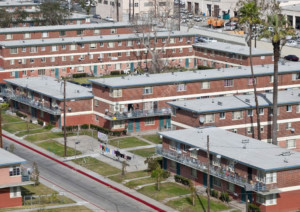 Have you ever been in an escape room? Only through solving a complicated problem can you and your group of friends or family escape. What happens if you don’t make it out in time? You lose, and you are “imprisoned” in the room. Now, imagine if that door never opened and you have to wait and see if your kids can solve the puzzle. While you wait, you are stuck in that room with only the resources that you came into it with. This is what generational poverty feels like—a locked room, a complicated puzzle, and only a short window of time to escape before the system traps you permanently.
Have you ever been in an escape room? Only through solving a complicated problem can you and your group of friends or family escape. What happens if you don’t make it out in time? You lose, and you are “imprisoned” in the room. Now, imagine if that door never opened and you have to wait and see if your kids can solve the puzzle. While you wait, you are stuck in that room with only the resources that you came into it with. This is what generational poverty feels like—a locked room, a complicated puzzle, and only a short window of time to escape before the system traps you permanently.
How do we define generational poverty?
In the United States, the poverty threshold is where a person’s income is less than sufficient to purchase basic needs: food, shelter, clothing, and other essentials. There are many types of poverty including generational poverty. Or, poverty that occurs in families where at least two generations have been born into poverty.[1] This kind of poverty is widespread throughout the United States as people, and communities, find themselves unprepared and without the necessary resources to unlock that door and walk out of the room.
We have all heard success stories of kids who “pull themselves” out of poverty to higher education, fame, and/or fortune, but no one asks about those who were left behind. We don’t hear about the people who weren’t able to overcome those same obstacles. It isn’t a matter of not caring enough or being lazy. Those success stories are extraordinary cases in a cycle of poverty that traps generations of families in hopelessness.
How can we help?
Once we recognize generational poverty as the problem, how do we solve it? One of the primary steps is through education. ECF has worked with organizations such as the Agape Youth and Family Center (Atlanta) which helps children in under-served families by providing them academic programs. Our grant helped them build a curriculum for social and emotional learning. An important topic in all our lives but especially for those who are trying to climb out of generational poverty.
Another important program serving the residents of Lumpkin county is the Community Helping Place; they provide medical aid to people experiencing homelessness, without insurance, or families with limited financial resources. Along with other essential needs such as food, infant and child health products, rent, and clothing. The existence of programs like the CHP allows people trapped by generational poverty to have the freedom to work, save, and live without worrying about those resources.
We have been fortunate to work with many organizations by providing grants to address the needs of communities afflicted with generational poverty. By educating ourselves, we can support programs that educate and provide for those currently suffering from generational poverty. To tear down the barrier that keeps them trapped and allow them the opportunity to flourish for generations to come.
[1] Jensen, Eric. Teaching with Poverty in Mind. ASCD, 2009.


One thought on “What is Generational Poverty?”